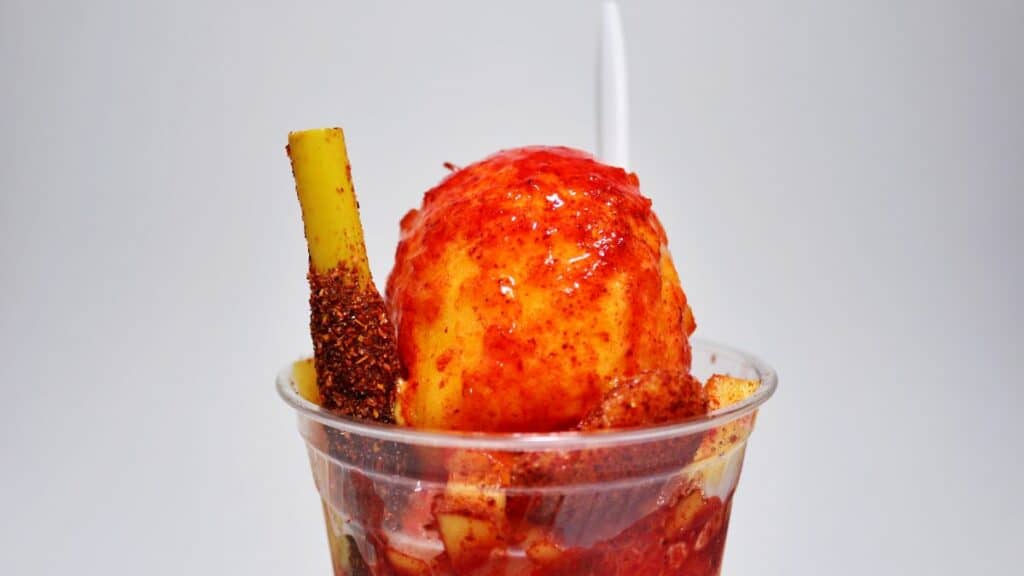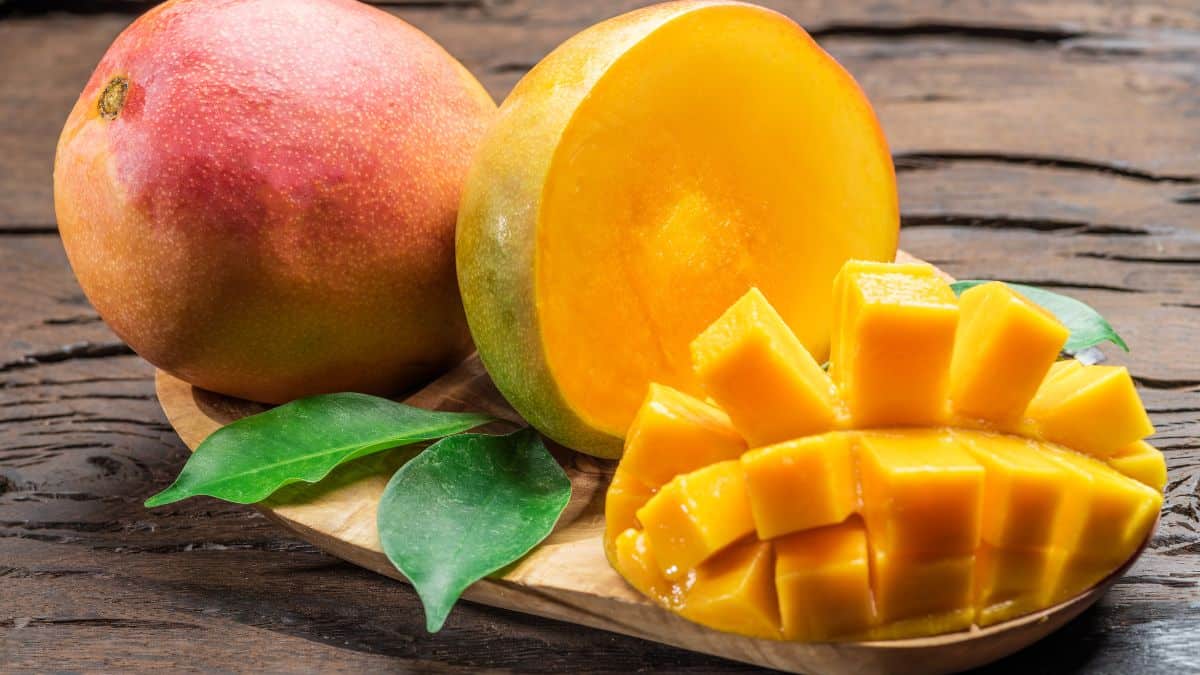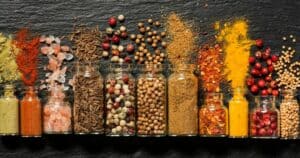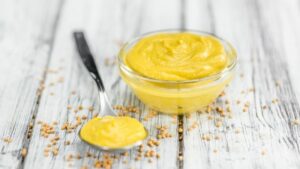The mango is a star in almost every situation, from being India’s national fruit to its tree being Bangladesh’s national tree. Mangoes are a fruit that can be used in a lot of different ways. In many cultures, they are used in ways other than just eating them. Mango can be many things, but is mango supposed to be spicy?
Mango is typically not spicy. They have a sweet, earthy flavor that can turn sour or bitter as the fruit matures. However, it can be spicy if used in a recipe with spices, such as spicy mango or if the fruit is overripe.
This article will explain why mangoes may have a spicy flavor. It will also shed more light on the nutritional composition of mangoes and recipes that make mangoes spicy with a simple display of creativity.
Why is Mango Not Typically Spicy?
Spiciness is not necessarily a flavor, but rather a sensation associated primarily with the nervous system as opposed to the taste buds. So, from this point of view, can mango be said to be spicy? Let’s find out.
Spice and Spiciness
A
Spiciness, on the other hand, is how a compound called capsaicin makes your tongue feel when it binds to a receptor called TRPV1. This sensation is typically a combination of heat and pain. It is experienced especially when chili is consumed.
Garlic, unlike chili peppers, does not contain capsaicin. Instead, it contains another compound that acts on a receptor similar to that of chili peppers but the same as wasabi. This compound is known as allicin. Ginger and piperine are two other compounds that give spices their spiciness.
How Do Mangoes Taste?
Mangoes are sweet, juicy fruits with a light, earthy flavor and a hint of tartness. The flesh of the yellow mangoes are smooth and velvety which makes them hard to ignore. The best word to describe how mangoes taste is “tropical,” because they have a lot of different tastes all at once.
Depending on the mango, it may have a citrusy flavor similar to oranges, a sour flavor similar to lemons, or a floral and tropical flavor similar to papaya and pineapple.
Mangoes are usually very sweet when they are ripe, but when they are unripe, they taste sour and have a firm texture. Overripe mangoes, on the other hand, have a sour taste but are mushy and soft. The bitterness of overripe mangoes is caused by the natural fermentation of sugars, which produces acids like tartaric acids.
Spicy Mango
Mangoes, as stated earlier, do not taste spicy. However, taste cannot be generalized to the entire population of the world. Therefore, some people have observed that their mango is spicy, this could be a result of their genes or an onset of a mango allergy.
The oil urushiol is found in mango, as well as, in a related plant, Poison ivy which causes allergic reactions. Though mango allergy is uncommon, it does exist and causes skin irritation when the plant or fruit comes into contact with it. Allergic reactions to mango include a rash, anaphylaxis, and vomiting.
Spicy mango is also referred to as a way of making mangoes with a variety of spices such as jalapenos, cilantro, red chillies, and more some of these dishes include, dried chili mango, mangonada, thai mango salad, spicy mango sauce, and others.

The desire for
What Is Mango Made Up Of?
Mango is primarily composed of macronutrients (carbohydrates, fatty acids, proteins, and organic acids), as well as water. It is also high in micronutrients like vitamins and minerals, as well as phytochemicals like phenolic compounds, flavonoids, phytophenols, carotenoids, and volatile compounds.
Mangoes have different amounts of nutrients, non-nutrients, and water depending on the cultivar, the region, the weather, and the fruit’s maturity. However, water is the component with the highest percentage composition in mango fruit, about 84%.
This fruit contains 15% carbohydrates. Sugars in mango include fructose, glucose, sucrose, starch, pectins, and dietary fibers. During ripening of mangoes, the levels of sucrose, fructose and glucose increases and starch is converted to glucose. Compared to unripe mangoes, ripe mangoes contain less pectins, structural and gelling sugars in the pulp.
The sweetness of mango comes from the fact that its flesh has a lot of sugars. Unlike unripe mangoes, ripe mangoes have a low acid content relative to their sugar content.
Organic acids found in mango include, citric, malic, succinic, tartaric, pyruvic, glucuronic, muconic, gallipic, and galacturonic acids. However, the major acids that are attributed to the acidity of the fruit are citric and malic acids. These acids are important flavor constituents of mangoes.
Mangoes, on the other hand, do not contain substances that can bind to and activate the TRPV1 receptor or its sister receptors, such as chili peppers, garlic, ginger, wasabi, and so on.
Frequently Asked Questions
How Long Will My Mangoes Last?
It takes one to seven days for an unripe mango to mature. A ripe mango, on the other hand, has a shelf life of two to three days at room temperature and five to seven days in the refrigerator.
How Can I Tell If My Mangoes Have Gone Bad?
The feel and appearance of a mango are indicators of its state. It is bad if the mango is mushy or very soft to the touch, and if the color is unusually dark.
What Nutrients Do Mangoes Give?
Mangoes are a great source of vitamin A, vitamin K, vitamin C, beta-carotene, folic acid, choline, magnesium, lutein, zeaxanthin, and other nutrients.
Final Thoughts
Mangoes are delicious fruits that can be found in almost every corner of the globe. Because of its ethereal flavor, it has become a vibrant component of many recipes, with some of them incorporating spices for a richer flavor. Enjoy some mangoes alongside your tasty dish!





